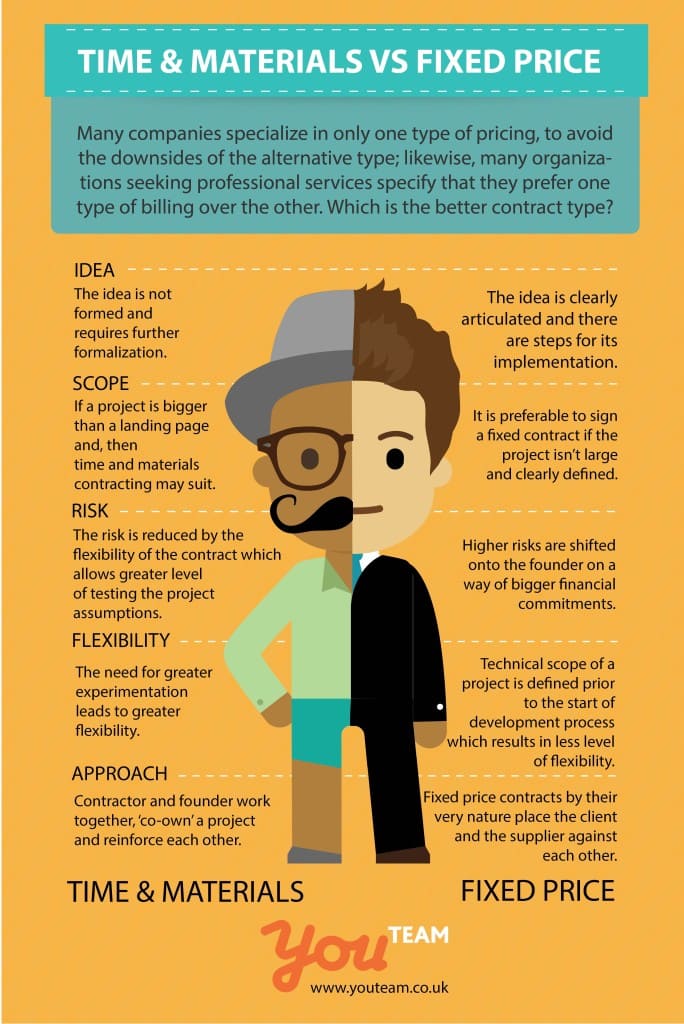At YouTeam, we recently had a discussion with our clients about which contract type better suits a startup development project: Time & Materials or Fixed Price. We feel it’s very important to educate first time founders about the differences between the two, otherwise a founder can end up with a headache or an empty wallet. That’s why we explored two types of contracts often used in software development and prepared an ultimate infographics guide, which will allow you to choose between Time & Materials and Fixed Price contracts.
Just as 90% of the industry, YouTeam prefers and suggests to its clients the Time & Materials model, which does not fix the overall scope of software development contracts. Instead, you are paying only for the actual hours worked, based on the reports we produce along with the invoices every two weeks. This does not mean that you have no control over the budget: we do provide the as-precise-as-possible advance estimate, regularly checking if we are staying within the scope and letting you know in advance if there is a chance to go beyond the budget.
The reason our industry prefers this model of software development is not because it reduces the supplier’s risk as it may seem: the risk distribution is similar to Fixed Price. In case a customer feels that the supplier is going unjustifiably beyond the scope, he may simply withhold the payment of the next invoice until the situation is clarified.
Time And Materials reflects the high level of uncertainty in which most of the projects–especially startups–are developed. The reality is that the initial scope of work very seldom remains unaltered in the course of the project. In a startup, you are learning every day and your vision changes frequently. Changing the scope means not only adding features, but also quite often removing those that don’t seem essential anymore. Time And Materials model provides both sides with the necessary flexibility so they can both focus on the final result–the working product that fits the market.







